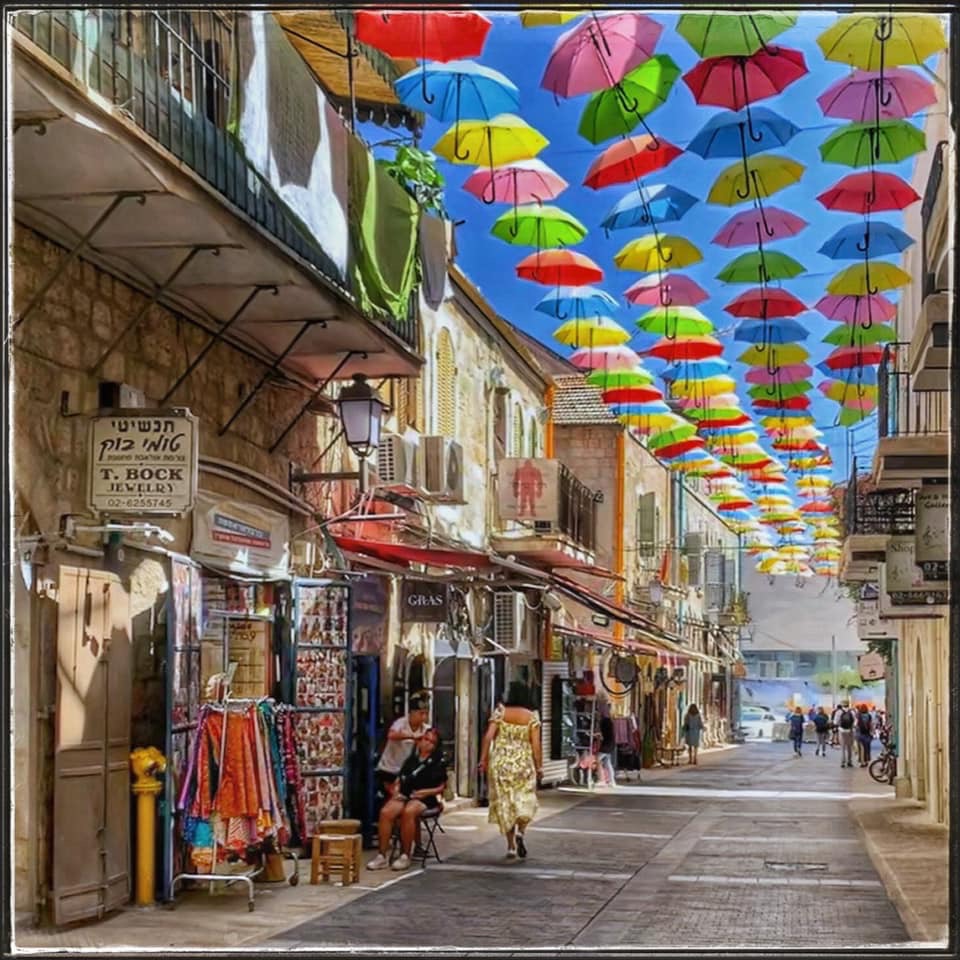 Umbrella season on Yoel Solomon Street in Jerusalem. Photos by Sarah Tuttle-Singer
Umbrella season on Yoel Solomon Street in Jerusalem. Photos by Sarah Tuttle-Singer I love to take taxis in Israel.
I love to move from city to city, through the hills, across the plains, stuck in snarling traffic or flying down the highway. I love the winding roads through emerald green forests, and the long, flat stretches through the vast, white deserts.
And mostly, I love to take taxis because I love to talk to the drivers — like Gila, who wears turquoise rings, smells like coconuts and brays when she laughs; or Yossi, who knows all the words to every song by Tina Turner; or Ahmed, who prays five times a day facing Mecca and speaks fluent Yiddish.
I love that in an Israel that is often divided between religious and political differences, we get to share space.
I love how all the taxis smell the same — like cherry air freshener and cigarettes. I love how all the drivers complain about the cost of living, love their families and can’t wait for their next cup of coffee. And mostly I love how each person on the road has such different stories about who they are and what they’ve seen and where they want to go.
Above all, I love that I get to share some of these stories with you.
From Tel Aviv Central Bus Station to Jaffa Port
“Taxi?” the man with the gold teeth asks.
“Yes. Jaffa Port, please.”
“Seventy shekels.”
“Nu. B’emet. Oh, come on. We’re 10 minutes away.”
“Fine. I’ll do it for 60.”
I roll my eyes and start to walk away.
“I’ll take you for 40,” another driver says. “I can see you aren’t a sucker.”
“Sagur. Deal.”
I get in the taxi.
“Where are you from? You look Swedish but you are too short to be Swedish,” he says.
“I’m from L.A.”
“I could fall for you,” he says. “Women bring down the world. Samson from your Bible, right? And the president of Israel, too. And Bill Clinton.” He sighs. “You look a little like the Swedish girl I saw in the Sinai many years ago when I was still too young to not know better. She was sitting there — without a shirt, without a bra, just … wow, wow, wow. I was staring and walking and staring and walking, and boom, I fell down the stairs and broke my leg. My friend laughed and said, ‘Well, you got something special, and now you pay for it.’ ”
I laugh.
We are close to the water now.
“Do you see that place?” he says. “That’s where the Dolphinarium was. Do you know it?”
I know it. I know about the kids blown to bits inside the nightclub in a horrific terror attack in June 2001.
“Those kids should have kids by now,” he yells out the window, shaking his fist. “They should have three kids each and be living in Ramat Gan. My God. Kids. They should be doctors and teachers and lawyers and maybe some would be getting divorced, but my God, they should be alive.”
“Yes, they should.”
“And now they’re tearing it down. Right. Left. It’s all bull—-. The government is bull—-.” He lights another cigarette. “Jew, Arab. It’s all bull—-.”
He takes a call and yells at someone.
“I’m sorry,” he says, hanging up. “It’s all bull—-.”
We curve around a hill. The old houses of Jaffa hug the terrain, the sky a deep blue.
“Look at this place,” he says. “It’s all bull—, but it’s my home.”
We get to the port and I hand him 50 shekels.
“Keep the change,” I say.
“Why? We said 40.”
I smile. “You gave me something special and I paid for it.”
He laughs with all his teeth showing, and gives me a high-five. “Everything comes from above,” he says. “Even the bull—-. But especially mornings like this.”
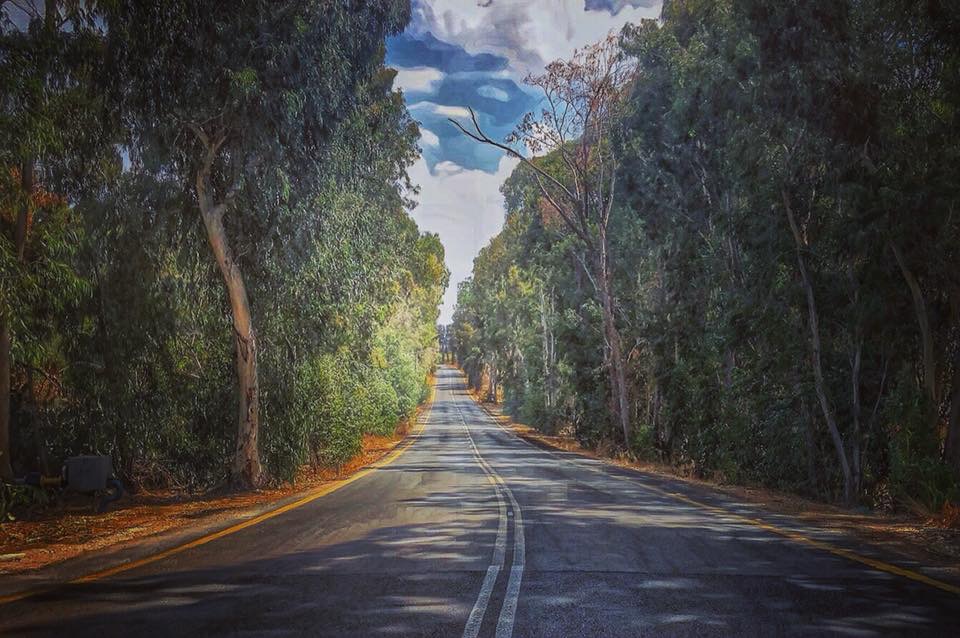
From Sheikh Jarrah in East Jerusalem to Kibbutz Gezer in central Israel
In the taxi with Raed, he says to me all the things I want to hear about peace and coexistence. “We all have to live together,” he says.
“You’re right,” I answer.
“It isn’t easy in Jerusalem,” he says. “We don’t meet each other. Even if we are sitting at tables next to each other at the same restaurant.”
“Why is that?”
“Because the Jews are afraid to mix with us.”
“Why do you think that is?”
“Because they’re afraid we’ll sleep with their women and marry them and have babies with them.”
I start to interrupt.
“Wait,” he says and holds up his hand. “I had a girlfriend — a beautiful Jewish Israeli girl. She was even in the army. I had no problem with this. I brought her home on some weekends and she would stay with me. My parents took it fine, even though she was working at a checkpoint near my cousin’s village. They didn’t care. She was nice. So it was OK. In our culture, it’s fine for me to marry someone who isn’t Muslim. OK, my sister can’t. She has to marry a Muslim, but men can marry Jews, Christians. It’s fine.”
“Because Islam is passed through the father, right?”
“Yeah. It isn’t that way for Jews, though.”
“I know. My dad isn’t Jewish. My mom is. So I’m Jewish.”
“Right. OK. So I go out with this girl and it’s fine with my family, but her family? Wow. They were so angry. We weren’t going to get married or anything. I liked her. She liked me. But they hated the idea that she went to sleep with me at night and woke up with me in the morning. And her family weren’t even those crazy extremists who beat up Arabs. They vote for the left: Avoda B.S. Meretz, Shmeretz. They’re all happy to be left wing and eat our hummus and talk about coexistence until their kids are playing with our kids or their daughter is dating one of us.”
“I guess they’re afraid.”
“Yes. But why? I’m a nice guy. I met her father. I tried to shake his hand. He wouldn’t look me in the eye. Do you know how that feels?”
I do know. I’m Jewish and I’ve traveled in countries where it isn’t always comfortable to be a Jew, and I tell him that.
“It hurts,” Raed says. “It makes me not want to even try to talk to people from your side because you’ve drawn lines and you’ve made sides. OK. Not you, but most Israelis, when they look at me, they see a dirty Arab. I’m sorry but I have to say the truth. Don’t they remember what it was like to be a ‘dirty Jew’? ”
I don’t know what to say, except, “I’m sorry this is happening. I want it to be different.”
“Me, too. I saw something I’ll never forget. There was an attack by the Damascus Gate. A cop was stabbed and the guy who did it was shot. There was blood everywhere. Red blood. All over. And I couldn’t tell where the Jewish blood stopped and the Arab blood began. We all bleed the same color. So why does it matter so much where we come from? We all are born the same way and we die the same way, too.”
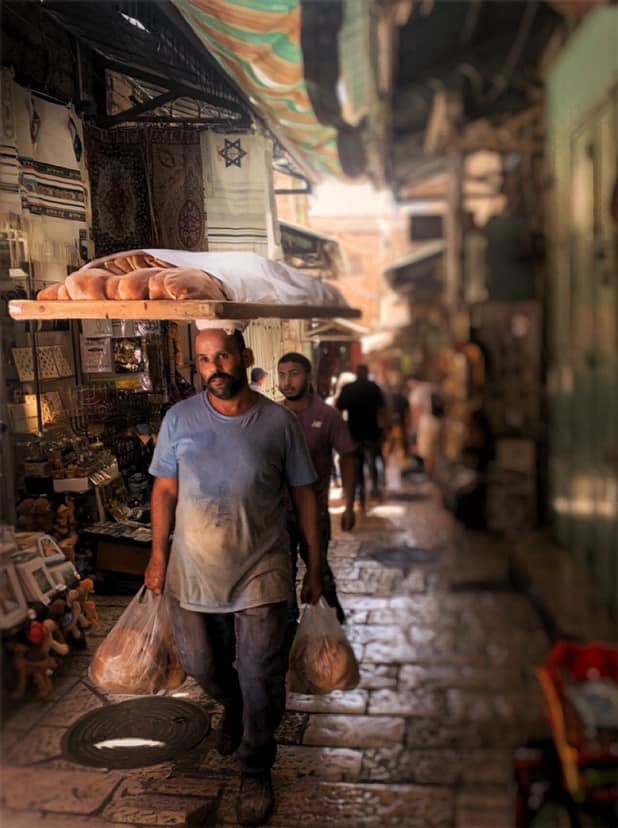
From Latrun Junction in the Ayalon Valley to Jerusalem
The driver is really, really happy. The radio is on. “Infected Mushroom.” He’s bopping along. “What’s today?” he asks me. “Sunday? Monday?”
“Sunday.”
“OK. So I still have to wait two days for my weed.”
I laugh.
“Do you smoke, kapara?”
“Not really.”
“Too bad. It’s great for parties, you know?”
He tells me about the desert, about dancing all night at raves, about this girl he loves with pink hair and tattoos all up and down her arms. He’s wearing a yarmulke, and there’s a sticker on the dashboard with a picture of the Rebbe.
I check the news. My stomach drops when I read the headline: 1 Israeli killed, 2 critically injured in a terror attack.
“Oh, my God.”
“What?”
“There was a terror attack.”
“When?”
“This morning.”
He sighs. “This is why I don’t listen to the news. I don’t smoke weed because it’s fun. I mean, OK, it’s fun. But I smoke because I have to, I swear. I even have a doctor’s note. After what I went through in Gaza, I have to smoke.”
“I’m so sorry.”
“When I hear the news, I can’t function. I get so thin because I won’t eat. You wouldn’t believe it. I mean, I look good, but I feel like hell. I just stay in my house and turn off all the lights and I don’t watch TV and I just check the windows. No one can get near me. The only thing that helps is smoking.”
“That sounds so awful and I’m so sorry.”
“What a mess,” he says. “You know, when I was a kid, before Gaza became what it is, my dad used to take me there for shopping and for hummus and we would go to the beach. He would carry me on his shoulders and then he would put me down and sometimes I played with the Arab kids while he smoked cigarettes.”
“It was different, wasn’t it?”
I love to move from city to city, through the hills, across the plains, stuck in snarling traffic or flying down the highway.
“Yeah, it was. It’s a mess now,” he says again in English. “And then when I was a soldier, I was a commando on the beach and we had to shoot and I remembered that I used to be there playing, and maybe I shot one of the kids I played with.”
He lights a cigarette. “What a mess. Now I smoke weed and I put on tefillin and I pray just to get by. I can’t listen to the news. It’s too much.”
“I understand.”
“But this is my country and I need to know what’s happening to my country.”
He fiddles with the dial and switches the station.
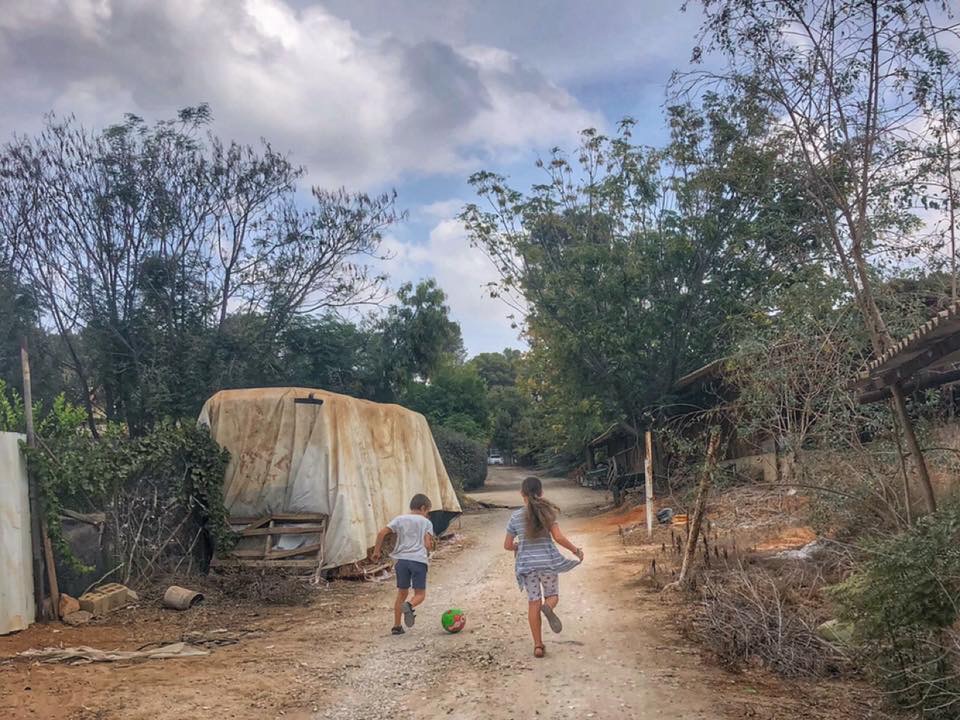
From Herzl Boulevard in Rehovot to my home on the moshav in central Israel
The taxi driver calls me Saraleh because he can see my name is Sarah from the Get Taxi app. He also can see I used a profile picture where my hair is blown out all shiny, and he says, “It still looks like you in the picture but I can see you had a busy day today and didn’t do your hair. But thank God you’re busy. Being not busy is the worst. I retired 10 years ago and I almost lost my mind until I became a taxi driver, HaShem Yishmor — God protect you.”
My 9-year-old son coughs.
“Here, have a candy,” the driver says. “It’s a candy for coughs.”
“We don’t take candy from strangers,” my son replies.
“It isn’t really candy. It’s medicine for your cough.”
“We don’t take drugs from strangers, either,” my 11-year-old daughter says.
“I’m not a stranger. Right, Saraleh? Tell your kids. We are all Israeli. We are all family.”
We all take a candy. They’re sealed. I make a mental note to talk about this with my kids at home.
“Stay busy, Saraleh,” he says. “Remember, being busy is better than good hair.” He rubs his bald spot and laughs. “And don’t forget to give Uncle Pinchas 5 stars and a tip.”
From Ramle in central Israel to the Mount of Olives in Jerusalem
The taxi driver has a tattoo on his right bicep of St. George slaying the dragon. His name is also George. And he also has an Israeli flag decal stuck on the dashboard.
I’m leaving the shuk in Ramle with my groceries, and the whole backseat of the taxi smells like mangos and fresh mint.
“I like your tattoo,” I say, and I show him the Coptic mermaid on my arm.
He asks if I’m Christian.
“No, I’m Jewish.”
“I’m a Christian. You’re lucky you’re Jewish.”
“How so?”
“This is your country. OK, I know outside of Israel it’s different but you can come here. This place will take you in no matter what.”
“That’s true,” I say. “This place is home.”
“You’re lucky,” he says again. “I wanted this place to be my home but it isn’t. I have no home. I was born here in Ramle and I am an Israeli but because I am not Jewish, Israelis look at me like I am an Arab and not a real Israeli. But most of the Arabs don’t accept me as a real Arab because they are Muslim and I am a Christian, so they call me a Zionist. Do you see? I want this place to be my home but it isn’t.”
“I’m sorry.”
“You wouldn’t believe how hard I’ve tried to make it home. When I was in high school, I even begged the army to let me join. I sent letters. I even went to the offices in Tel Aviv. They said they have no record of me even applying. I wanted to join so badly to fight for this country and defend it but they don’t want me. Why? Because even though I am an Israeli, all they see is an Arab.” He sighs. “And now? I’ll tell you the truth. The first chance I get to leave this place, I am gone. Why should I stay where I’m not wanted? I would rather wander in the desert.”
We stop at a traffic light. He reaches over and peels the Israeli flag decal from his dashboard, crumples it, rolls down the window and throws it out.
A hot wind blows through the car.
From Rothschild Boulevard in Tel Aviv back home
I think this must be the last taxi out of Tel Aviv on erev Yom Kippur. The streets have mostly emptied and already a few bicyclists are on the Ayalon freeway speeding toward the sunset.
That’s the thing about Israel. The whole country grinds to a halt on Yom Kippur. A stillness falls. Shops shutter, the radio goes silent. There’s nothing on TV unless you pay extra for satellite television. But the other thing about Israel is this place isn’t monolithic. There are people who fast. And people who don’t. There are people who pray. And people who won’t. Sometimes, people can’t.
And while the cars hold their parking spaces for 25 hours, in places like Tel Aviv, out come the bicycles. It’s amazing to see. From old men in neon orange short-shorts to little girls in pink helmets, to fathers and mothers chasing their kids who are riding three-wheelers, to teenage boys in Maccabi Tel Aviv jerseys trying to keep up with their pretty girlfriends, the highway becomes the Tour de France.
But that means we have to get off the road before sunset, before the holy day begins.
“Are you fasting?” the driver asks. “Eh,” he says, before I can answer. “Fast if you want. Don’t fast if you don’t want. Let me tell you a story. Every year on Yom Kippur, me and my army buddies would barbecue on the beach. Every single year. I brought the steaks. Sometimes chorizos after Yossi got back from Argentina. We drank beer and listened to music and smoked cigarettes from noon until three stars. Except one year, Yossi got a little religious on us and he said, ‘Halas, let’s go to synagogue this year.’ So we did. We all went.”
“How was it?” I ask.
“Ahh … first, ask me what year it was?”
“What year?”
“1973, kapara. 1973. Do you know what happened on Yom Kippur in 1973?”
Do I know what happened on Yom Kippur in 1973?
While most of Jewish Israel — including these army buddies — were in synagogue on the holiest day of the year, Egypt and Syria launched a strike against Israel.
Do I know what happened on Yom Kippur in 1973?
There are men who held their friends in trenches and watched them die. There are women who never saw their husbands after their last kiss. There are babies who were born just a few months later with no fathers.
Do I know what happened on Yom Kippur in 1973?
We were almost brought to our knees. We almost lost that war. We almost lost everything. Even the right to fast on Yom Kippur. Or not fast. The right to stay in synagogue or ride bikes down the Ayalon.
“Wow,” I say.
“So. You see? We never fasted again. We never went to synagogue on Yom Kippur. And every year since, we meet on the beach and barbecue like we did every year before that one terrible Yom Kippur when we went to synagogue like everybody else.”
“Wow,” I say again.
“Eh,” the driver says as he slows for the exit. “That’s just how it is. Israel depends on our diversity. It’s why we keep surviving.”
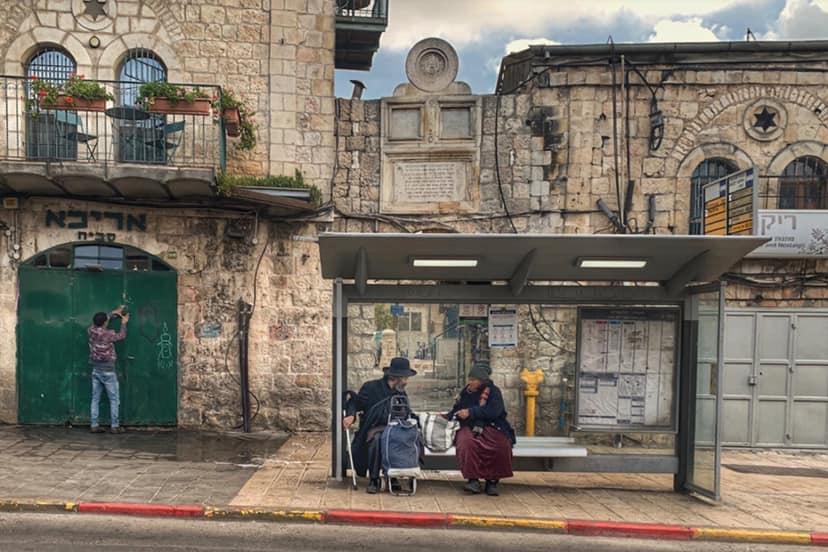
From Damascus Gate in the Old City of Jerusalem to the Jerusalem Central Bus Station
“I went to high school in the Old City,” Mahmoud tells me in Hebrew when we pull out of the taxi stand by Damascus Gate. “It was the school just inside the gate, near Al Wad by the mosque.”
“What was the school like?” I ask.
“Just a school. It was closed half the week, though.”
“Why?”
“The army would come in and shut it down.”
“Why?” I ask again.
“Do the years 2000-2004 mean anything to you?”
“Oh.” The bloody, terrible years here when every siren was followed by another and another, when Jerusalem smelled like smoke and burning flesh.
“Yeah,” he says. “It was the [Second] Intifada and the army would come in and just shut us down, and so, instead of sitting in the classroom and learning math and history, we would all go up on the roof and chuck stones off the sides; not little pebbles but real stones.” He shakes his head.
I feel my stomach twist. Stones thrown from that distance could pulverize your skull and turn you into pink and grey and red, sinew, bone and blood if you were underneath. They were children and the stones were the heaviest weapons they could find.
“It was messed up,” he says. “Stupid kids all of us, and we did stupid stuff. But I was angry. My big brother was shot in the back by soldiers and he couldn’t walk or eat and had to pee through a tube.”
I think of my kids and their childhood spent with no real uncertainty, no barbed wire, no forced closures, no anger, no reasons to climb a roof and throw things.
And then I also think of how we spent a summer sleeping in bomb shelters and running over parched earth, and how, like every Israeli, we all know someone who was killed or injured in a terror attack or war.
“It was hard,” he says. “The soldiers would also come into the classroom and just look at all our faces and, if they didn’t like one face, they’d pull the kid out even if he didn’t throw stones. Even if all he did was just sit there without blinking. That made them mad, when we would stare back at them with no fear.
“But I don’t blame the soldiers. They had their job and we had our job and I really just blame the school for letting them in and letting them shut us down, and letting us have all that free time to do stupid and terrible things. Someone should have been the grown-up and made us stop. But no one did.”
He takes a sip of coffee.
“How’s your brother now?” I ask.
“He’s still alive, but not really. He’s just a ghost in a dried-out husk with a tube for peeing.”
We sit in silence for a while and he offers me a sip of his coffee. I take it. It smells like earth.
“Those kids should have kids by now,” he yells out the window, shaking his fist. “They should have three kids each and be living in Ramat Gan. My God. Kids. They should be doctors and teachers and lawyers and maybe some would be getting divorced, but my God, they should be alive.”
From King George Street in Jerusalem back home
I am sharing a taxi with this woman on a frigid, moonless night in Jerusalem.
She is on her way back from working late in the ultra-Orthodox neighborhood of Mea Shearim. I am heading out of the city, exhausted. The last bus had come and gone, belching down King George Street, probably an hour before. We are stranded but I have enough for a taxi, and I ask if we can drop her off.
“No, it’s OK. I’ll walk,” she says.
“No way. It’s freezing and it’s late.”
A taxi pulls over and we get in. She gives him directions and I shut my eyes.
I had never met her before but we are both American, which means we’re landsmen, which is as close as family some days, and we talk about her work and about the friends we have in common and about the things she cares about.
“I just read a horrible article about the Yemenite kids who disappeared,” she says. “I want to believe it isn’t true, but …”
All those Yemenite babies who vanished when they were born. Their parents were told they were born blue, but there were no bodies and no graves, and a mother never forgets the cry her child makes when he is born pink and healthy.
This was years ago and Israel had a terrible track record of treating non-European Jews as less than human in the 1950s. Evidence is inconclusive. Maybe these babies really died. But many people believe these kids were taken away and adopted out to Ashkenazi families that couldn’t have children and would do anything to be parents. Some speculate that the babies went to grieving and childless Holocaust survivors. That’s the best-case scenario, and it’s still the worst.
“It’s awful. The worst,” I say. “I don’t even want to imagine.”
We drop her off.
The taxi driver doesn’t charge her for the ride. “And don’t worry,” he says. “I won’t charge extra for you. It was nice of you to make sure she got home.”
“Thanks.”
“It’s Israel. We take care of one another.”
I smile and close my eyes. The taxi driver clears his throat. “Pardon?” I ask.
“The girl we just took home. What she said about the babies. It’s true,” he says.
He looks at me in the rearview mirror.
“I’m a Yemenite,” he says. “And my aunt had two babies. Two beautiful little girl babies. And the doctors told her one of them died when she was born. She grieved for her dead child and she threw her whole heart into raising her living one. That girl — my cousin — got older and got her draft notice for the army and she went to the army and she saw a girl who had her exact same face. And they had the same birthday, too. But her name was Weiss or Gold or something Ashkenazi, not Yemenite like her name should have been.”
“What happened?”
“My cousin tried to talk to her but the girl pushed her away and told one of the officers that she was harassing her, and so they moved her to a different unit and we never knew what happened to her. Her twin sister.”
“That’s heartbreaking. I’m so sorry.”
“Sometimes the truth is too horrible to face. She couldn’t face it. My aunt never got over it. Neither will I. Please tell people so they know, too.”
I shiver.
And it’s Israel, and we take care of one another. So I’m telling you, just like he asked.
From home to the Terem emergency clinic in Modi’in
It’s 6:30 a.m. and my son’s arm is red and swollen and tingly from a bug bite he got yesterday at a friend’s house. I call Uncle Pinchas the taxi driver, and as soon as he answers, he says, “What’s wrong?” because it’s 6:30 a.m.
I tell him I need to get to Terem Urgent Medical Care with my son, so he says, “I’m already on the way.”
He rolls up 10 minutes later in his pajamas with his flag from Independence Day still waving from the window, and he drives us 15 minutes to Terem, and while my son and I wait for the doctor, he goes to get us coffee because everyone needs coffee, especially when your kid is in Terem, HaShem Yishmor — God protect you.
By the time we are finished with the doctor and everything is OK (except my son has That Kind of Jewish Mother who freaks out about bug bites), Uncle Pinchas the taxi driver is sitting in the waiting room still in his pajamas reading Israel Hayom and muttering to himself.
He hands me the coffee and tells me to drink it in the waiting room because I shouldn’t spill on myself in the taxi — HaShem Yishmor.
My son wanders over to the vending machine and stares at it longingly.
Uncle Pinchas folds his newspaper, gets up and says, “What do you want me to buy you?”
“No, it’s cool,” my son says.
“But you are like a son to me,” Uncle Pinchas says, and he buys him a Snickers bar, the breakfast of champions.
“But don’t eat in the taxi because you could choke — HaShem Yishmor,” Uncle Pinchas says.
He drives 15 minutes back to the moshav through the sweet morning.
“Thank you for taking such good care of us,” I say when we arrive.
“Of course, you are like family to me,” Uncle Pinchas the taxi driver says.
“That’ll be 480 shekels.”
From Jerusalem back home
It’s evening and the driver is laughing.
“What?” I ask, my one earbud still in an ear while I listen to the Red Hot Chili Peppers.
“That guy. Menachem.” He points to the driver in the taxi next to us. “He makes me laugh.”
He rolls down the window.
“Shalom! Ma koreh? How are you?” he shouts in Hebrew, his “k” hard and his “o” guttural.
Menachem in the other taxi, waves. “Kif Halak?” he replies in Arabic as he adjusts his black yarmulke.
We drive off.
“Do all the taxi drivers know each other?” I ask.
“Of course. We are family. We all look out for each other. When Menachem’s wife died, I came for shivah, and we break the fast together at least once every Ramadan.”
“Wow, that’s great.”
“La. It’s just reality. We have to be gentle with each other. At the end of the day, everyone just wants to get home.”
Sarah Tuttle-Singer is the new media editor at The Times of Israel and the author of “Jerusalem, Drawn and Quartered: One Woman’s Year in the Heart of the Christian, Muslim, Armenian, and Jewish Quarters of Old Jerusalem.” She also speaks with audiences left, right and center through the Jewish Speakers Bureau. Sarah is a work in progress.
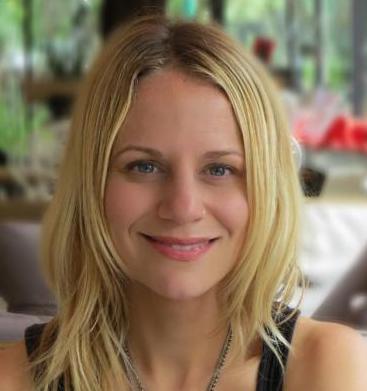
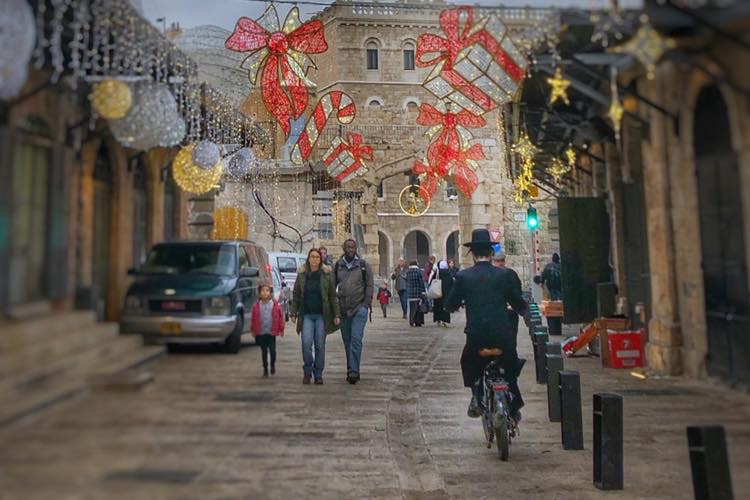






















 More news and opinions than at a Shabbat dinner, right in your inbox.
More news and opinions than at a Shabbat dinner, right in your inbox.